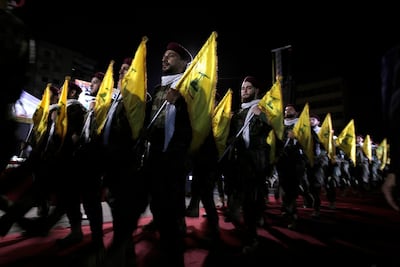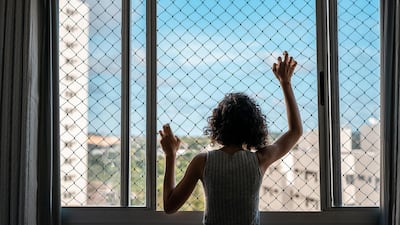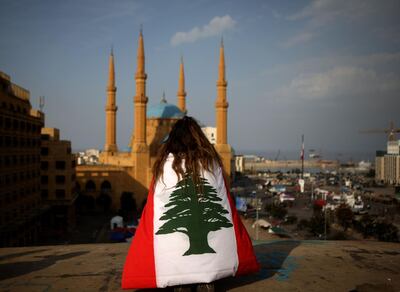For years, Lebanon ranked among the best countries in the region in terms of the freedoms it offered. It was a good place to work as a journalist – a country where media practitioners faced minimal intimidation and harassment. But recently Lebanon’s name started peeking through the headlines because of the number of journalists and photojournalists either summoned and investigated by security forces or attacked in protests. The number of reporters bullied and threatened online has tripled in the past year alone.
Journalist Dima Sadek has woken up to online hate campaigns because of her work. Mohamad Zbib, another reporter, was cornered and attacked on the street earlier this year in Beirut’s Hamra district.
Online harassment, especially against female journalists, is becoming a powerful weapon. Social media, in particular, is being used to intimidate, blackmail and sometimes threaten women working in the media. This is becoming a dangerous trend in Lebanon, where organised cyber armies initiate attacks to discredit female reporters while spinning the popular narrative to fit their political parties’ agendas, even if it means using defamation or Photoshopping pictures. One of the key players in this domain in Lebanon is a network of social media accounts supporting the militant party Hezbollah.

This is what happened to me on the week of October 1, after I tweeted a picture of the Hezbollah flag with accompanying text reading “the elephant in the room” to suggest that Hezbollah’s overpowering influence is a subject that the Lebanese often refrain from talking about. I tweeted it in the context of a discussion about how party politics in Lebanon is crippling public services and will lead the country to further collapse.
I received plenty of criticism, including some angry comments. None of this was unusual, given that I am an active writer. I am also very opinionated, expressing what I think openly, and I am a firm believer in my right to say what I want to say as a woman journalist reporting from the field.
The greatest damage came, however, when an Israeli channel quoted my tweet the next morning – without my consent, of course, because Twitter is considered an open source. Anyone can use public tweets, endorsing or criticising them. This step, being out of my control, brought a wave of hate, initiated by a fellow journalist who works in a pro-Hezbollah media outlet.
The responses I received from that point on no longer fell under the umbrella of “normal criticism”. I received animated GIFs of cars exploding, users were tagging security forces urging them to arrest me at my home and accusing me of being a traitor. They claimed that I endorse the “Israeli agenda”, and associated me with other Lebanese citizens who are being investigated on suspicion of dealing with Israel. All of this happened simply because I tweeted an opinion and shared news, which is my job as a journalist, and which is something everyone else was doing.
I am paying a significant price just for doing my job.
That is not the only price that too many women in journalism are now paying in Lebanon. In addition to being underpaid and overworked, threatened, bullied and harassed, female journalists face one additional risk, which is being painted by the politics of the sect to which they happen to belong. Hezbollah is a Shia party, and I come from a Shia background. So criticising them not only placed me in a direct confrontation with their politics, but also with what Lebanese society considers to be “my own people” and anyone supporting a sectarian narrative.
The confrontation didn’t end there. It has continued, led mostly by cyber armies that get paid to bully women in journalism. In my case, the campaign has extended to targeting my family.
My own cousin, whose father died while fighting for Hezbollah years ago, denounced me on Twitter, accusing me of being a “cheap traitor”. I was shocked to find out, after thorough research, that she herself participated some weeks ago in a naming and shaming campaign targeting another Lebanese female journalist.
Many of us don’t endorse our families’ political views in Lebanon. It’s a diverse society where interreligious marriages are common. The state of political differences, however, has reached a new low when as a female journalist you are denounced by your own family and by other women. It’s an indicator of how complex Lebanon’s current political situation is. If families can no longer communicate about politics and agree to disagree, how do we expect political parties to do so on a national level?
The popular protest movement that erupted throughout Lebanon last October, and has continued over the past year, has further highlighted the state of freedoms and journalism in a nation that was once considered a jewel in the Middle east, not only in terms of tourism and the economy, but also for its culture and diverse society. The beauty of Lebanon lies in its differences, even the political or religious ones. Lebanese journalism often articulates that beauty to the world.
But political tensions have made it almost impossible for a journalist to cross certain parties. Even when the backlash doesn’t rise to the level of a concerted, online campaign or worse, those who want to express themselves must always be on their guard.
After my own experience, Reporters Without Borders issued a statement of support to me and my colleagues who have been through similar ordeals. They wrote: “These women have been subjected to an unjustified wave of hostility because they are independent and refuse to follow the editorial line of the media of the community to which they are supposed to belong. Being a woman is an additional difficulty that exposes them to all sorts of sexist insults of varying intensity. These threats must be taken seriously and everything must be done to protect the victims.”
And while it remains a surreal moment for me to wake up and find my name included in global statements of solidarity, I refuse to refer to myself or these other brave female journalists as victims. We are not victims. We are fighters, fighting against a corrupt system and an unfair state that tries to justify – through its politics and even its laws – the harassment we are forced to endure. But we do sleep well at night by assuring ourselves that we are fighting the good fight. No amount of bullying will ever change that for me.
Luna Safwan is a Lebanese freelance journalist who works on press freedom



